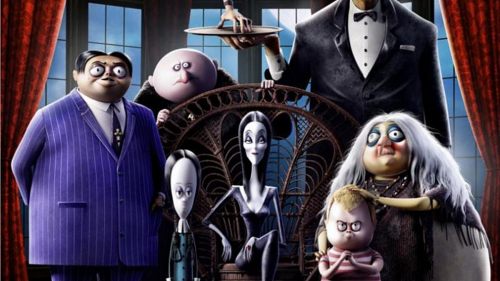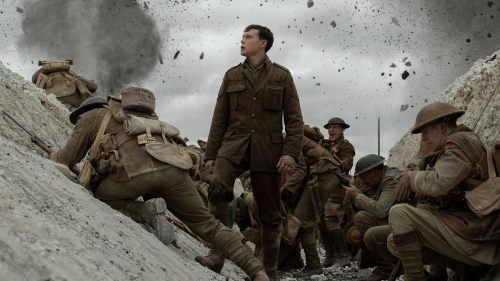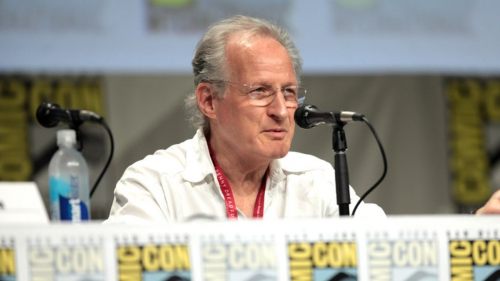THE GOLDFINCH Review: When Prestige Fails To Take Flight
Donna Tartt’s novel The Goldfinch is a monumental beast of a thing, a 750-page character study that almost completely abandons notions of structure and pacing for the sole purpose of riding around in a single boy’s head through the events that inform his growth into adulthood. To call it Dickensian is probably a disservice to both Tartt and Dickens, but The Goldfinch runs into a similar issue as David Copperfield in that the sheer scope of both novels makes them massively unwieldy for adaptation into conventional three-act cinematic narrative, in no small part because any sense of arc is entirely internal to their protagonists and the true point of interest for both stories is their broad bevy of supporting characters. But damn it, The Goldfinch was a popular contemporary novel, so it needs to be fed through the Hollywood adaptation machine to mine some precious dollars from its fans. And while I applaud director John Crowley of Brooklyn fame for trying so hard to make this literary behemoth function on screen, the weight of it just doesn’t work as adapted by screenwriter Peter Straughan, even with a strenuous two-and-a-half hour runtime.
Any attempt to concisely summarize the plot of The Goldfinch is an exercise in maddening futility – as I am sure Straughan can attest – but suffice it to say that it’s the story of a teenage boy named Theo (Oakes Fegley) whose life is upended when he and his mother are caught in a terrorist attack at the Metropolitan Museum of Art. Theo’s mother dies, and Theo stumbles from the wreckage with the famed titular painting hidden under his arm, taken for reasons that even he cannot fathom. With the painting in his possession and presumed lost to the world, Theo fumbles his half-orphaned way into adulthood, ultimately growing up to become an antique art dealer (played by Ansel Elgort) who still remains haunted by the traumas of his past.
Cinematographer Roger Deakins composes breathtaking shots that offer the illusion of prestige, and it’s a testament to Crowley’s skill as a director that he manages to make Straughan’s primarily expository dialogue feel natural as delivered by entirely too many recurring subplots disguised as characters. In order to cram as much of the novel as faithfully as possible into the film, characters will fill in backstory rather than let the film show it organically, and the result feels like a Cliff’s Notes presentation that might actually only make coherent sense if you’ve read the novel. This is further compounded by the bizarre decision to intercut scenes of Fegley’s Theo with Elgort’s future iteration, creating a parallel narrative across time that only serves to remind you that Elgort is the star this film is supposedly being sold on. And when the entire thrust of your narrative is based on the internal life of a ludicrously complicated individual who doesn’t even entirely comprehend his own emotions, you should really be thankful that Ansel Elgort is only playing that character for a third of your runtime.
This isn’t to say The Goldfinch is entirely bereft of value, as most of that can be mined from the multitude of supporting actors fighting vociferously for screen time. Oakes Fegley demonstrates himself to be a child actor worth paying attention to, giving life to Theo in startlingly stark contrast to Elgort’s woodenness. Nicole Kidman gives a wonderfully subtle performance as the emotionally detached but empathetic mother of a friend who takes Theo in after the terrorist attack. Jeffrey Wright makes an appearance as a soft-spoken, mentoring antique restorationist. Luke Wilson reminds you that he’s a pretty fine actor as Theo’s compulsively gambling and duplicitous father. Sarah Paulson gets too little time to portray Theo’s father’s enigmatic girlfriend. However, the MVP is Finn Wolfhard playing Boris, a Ukranian-born confidante of circumstance who plays the unrestrained adolescent id to Theo’s repressed composure, exposing Theo to the pleasures of alcohol, drugs, and male companionship. I would kill for an entire film based on Hegley and Wolfhard coming of age in the Nevada desert as shot by Roger Deakins, but as with all subplots in The Goldfinch, the experience is painfully truncated.
The adaptation of The Goldfinch feels as though it’s the byproduct of an owl’s feast, a pellet left behind by the digestive, adaptational process. The bones of The Goldfinch are nearly all present and accounted for, wrapped in a neat bundle for you to sift through. Those bones evoke a sense of familiarity, and many are still beautiful in their own right, in a morbid, taxidermic kind of way. But to appreciate the bones, you still have to poke through a pile of waste, and even if you assemble the pieces, you’ll never have a singing, flying goldfinch again.



